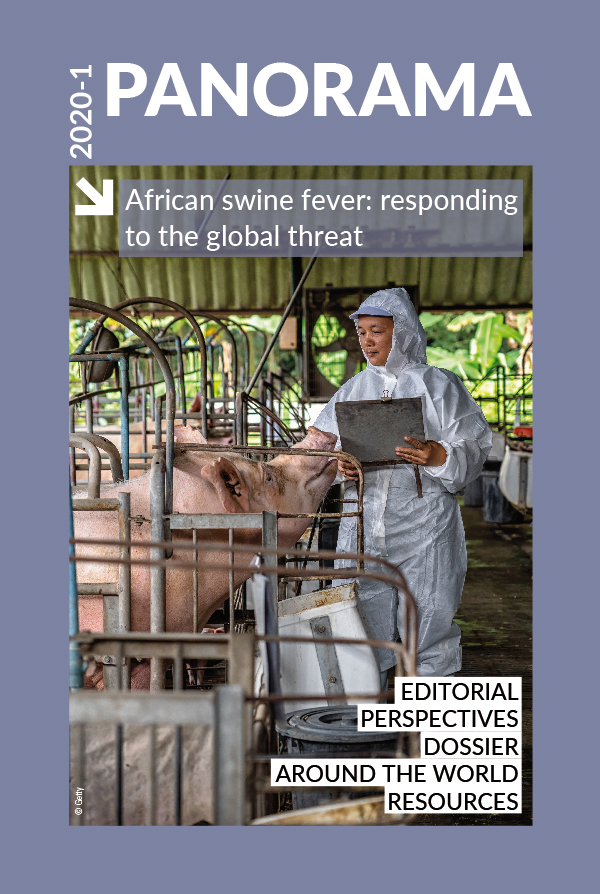Editorial Posted on 2020-07-24 08:58:04
Importance of global ASF control
Keywords
Controlling ASF remains a challenge due to its complex epidemiology; the lack of a safe and effective vaccine, means that strict biosecurity is required for control; and the immense difficulty in implementing the necessary measures and changing high-risk practices within the diverse and demanding scenarios that many countries face. The task can be compounded by a lack of: political support, technical capacity and sustainable resources.
To respond to this challenge, there is an urgent need to revise the current understanding of ASF, facilitate the development of adequate scientific approaches and effective tools, increase commitment and support of governments, improve the technical capacities of Members, and engage in effective risk communication with the relevant stakeholders and development partners.
The Global Initiative for the control of ASF is coordinated by the OIE and FAO
The World Organisation for Animal Health (OIE), in coordination with the Food and Agriculture Organization of the United Nations (FAO), has been working diligently to address such needs, by providing international standards and best practices for the effective control of ASF, improving transparency of new and evolving outbreaks via the World Animal Health Information System (WAHIS), implementing diverse, technical capacity-building activities, and launching awareness campaigns.
However, to implement these and other key activities effectively, well-coordinated national, regional and global efforts will be required, not only by governments and public institutions, but also by a range of different stakeholders who participate in pig production and trade value chains.
To assist in this, and to answer the call for action by our Members, the Global Initiative for the control of ASF has been launched under the GF‑TADs(1) framework in coordination with the OIE and FAO. The initiative will provide the global strategic framework to carry out commensurate actions, and harmonise partnerships and coordination at the national, regional and international levels, taking into consideration those programmes that already exist.
OIE Members must lead these efforts and drive the changes necessary to achieve global control of ASF
Nevertheless, it is the Members of the OIE, supported by international organisations, regional economic communities and development partners, who must lead these efforts and drive the changes necessary to achieve global control of ASF.
The articles presented in this issue of Panorama will provide an overview of global ASF control, highlighting some of the ongoing OIE actions, key characteristics of the disease, an update of the global situation, recent experiences and lessons learned, and the role of key partners.
I wish to thank the authors for their contributions and hope you find this issue useful and informative.
Monique Éloit
Director General
World Organisation for Animal Health (OIE)
________________________________________
(1) The Global Framework for the Progressive Control of Transboundary Animal Diseases (GF‑TADs) is a joint initiative of the OIE and FAO that endeavours to empower global and regional alliances in the fight against Transboundary Animal Diseases (TADs), to provide for capacity building and to assist in establishing programmes for the specific control of certain TADs based on global and regional priorities.
http://dx.doi.org/10.20506/bull.2020.1.3115










